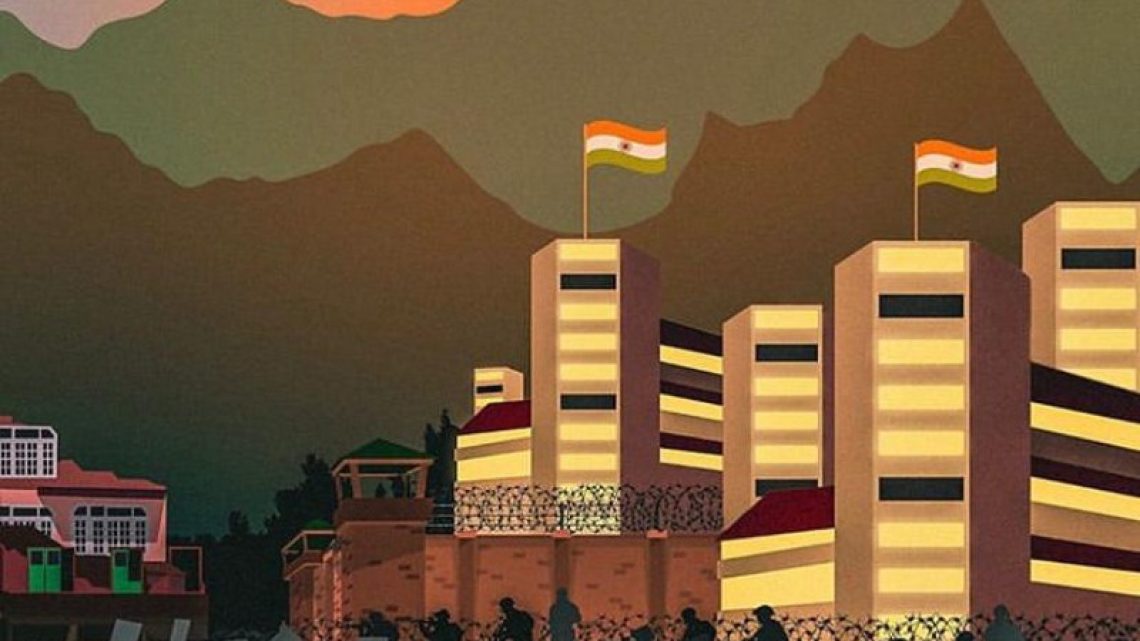
India’s Settler-Colonial Agenda in IIOJK: A Call for Action
May 27, 2024India’s ongoing actions in the region of Indian Illegally Occupied Jammu and Kashmir reflect a deliberate and troubling agenda aimed at erasing the cultural and demographic identity of its Muslim inhabitants. The All Parties Hurriyat Conference (APHC) has voiced strong concerns, accusing the Modi administration of implementing a systematic settler-colonial strategy in Indian Illegally Occupied Jammu and Kashmir (IIOJK). This initiative is perceived as part of a broader ideological pursuit by the ruling Hindutva forces, specifically the Rashtriya Swayamsevak Sangh (RSS) and the Bharatiya Janata Party (BJP).
The APHC leadership has repeatedly highlighted that the colonial nature of India’s presence in Kashmir dates back to October 27, 1947, when Indian troops first arrived in Srinagar. Since then, Kashmir has been treated as a colony by successive Indian governments. The situation escalated significantly on August 5, 2019, when the Modi regime abrogated Article 370 of the Indian Constitution, which granted special autonomy to Jammu and Kashmir. This move, seen as illegal by many, was a critical step towards transforming the region’s demographic landscape, effectively disenfranchising the local Muslim population and diluting their cultural identity.
Post-August 5, 2019, the BJP-led government has enacted numerous laws aimed at facilitating the migration of non-Kashmiri Hindus into the region. These new legal provisions make it easier for outsiders to obtain domicile status and property ownership rights in IIOJK, directly threatening the Muslim majority character of the region. The APHC asserts that these measures are designed to render Kashmiris homeless and erase their identity.
A significant component of this strategy involves the use of Indian business entities and influential tycoons to establish economic and infrastructural footholds in IIOJK, mirroring tactics used in other historical settler-colonial contexts. The Modi government’s policies have included illegal land seizures and the demolition of properties owned by Kashmiri Muslims, further entrenching the settler-colonial agenda.
The ultimate goal of these actions, as stated by the APHC leaders, is the erasure of Muslim identity and the imposition of a Hindu-centric societal structure in Jammu and Kashmir. Such measures are not only seen as oppressive but are also considered violations of international law, specifically United Nations resolutions concerning the status and rights of the Kashmiri people.
The international community has been urged to acknowledge and respond to the gravity of India’s actions in IIOJK. The APHC leaders call for a global outcry against what they describe as a blatant settler-colonial project, which they argue constitutes crimes against humanity. The continued silence or inaction of the global community only emboldens the Indian regime to proceed with its controversial policies unabated.
The situation in Jammu and Kashmir is often compared to other historic and contemporary instances of settler colonialism, where indigenous populations have faced systematic efforts to erase their presence and identity. The APHC draws a parallel to the Israeli model of settlement expansion, suggesting that India’s approach in Kashmir mimics these strategies to achieve similar objectives.
This alarming transformation of the region’s demographic and cultural landscape poses significant risks to peace and stability in South Asia. It is not merely a local or national issue but a matter of international concern. The potential for escalated conflict, increased human rights violations, and long-term regional instability necessitates an urgent and robust response from the global community.
To conclude, the APHC’s call to action underscores the need for international intervention to halt India’s settler-colonial practices in Jammu and Kashmir. It is imperative for the world to hold the Modi regime accountable for its actions and to support the rights and identities of the Kashmiri people. Failure to address this issue promptly and effectively could lead to further human rights abuses and deepen the crisis in this already volatile region.

